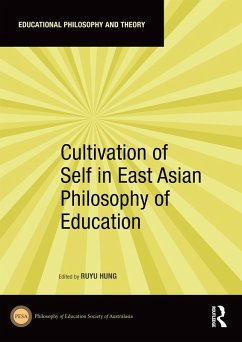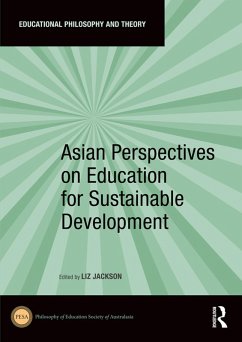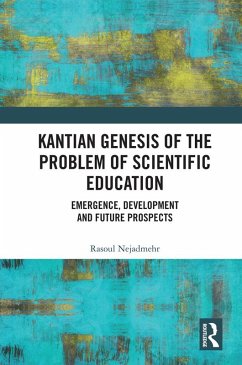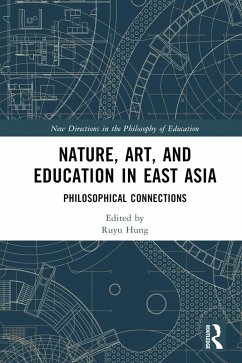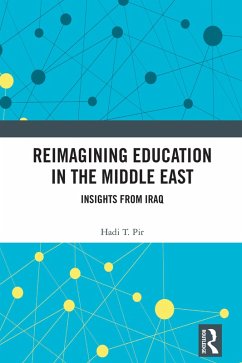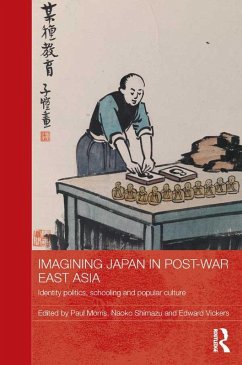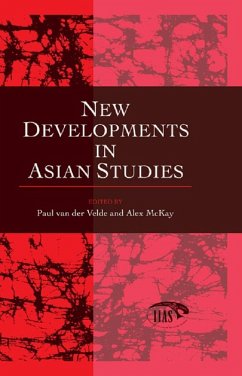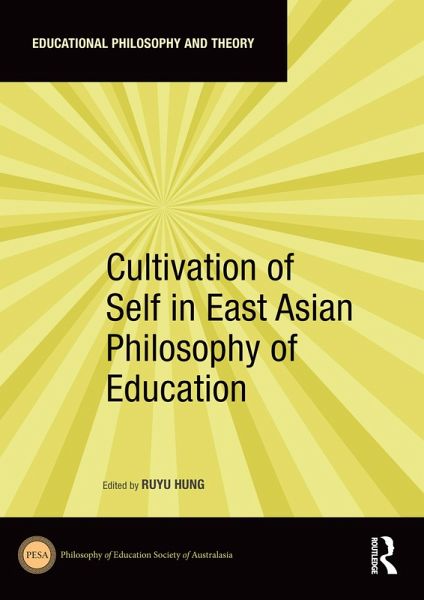
Cultivation of Self in East Asian Philosophy of Education (eBook, ePUB)

PAYBACK Punkte
20 °P sammeln!
This book provides exciting and significant inquiries into the cultivation of self in East Asian philosophy of education.The contributors to this volume are from different countries or areas in the world, but all share the same interest in exploring what it means to be human and how to cultivate the self. In this book, self-cultivation in classical Chinese philosophies-including Confucianism, neo-Confucianism, and Daoism-is scrutinised and elaborated upon, in order to reveal the significance of ancient wisdom for today's educational issues, and to show the meaningful connections between Easter...
This book provides exciting and significant inquiries into the cultivation of self in East Asian philosophy of education.
The contributors to this volume are from different countries or areas in the world, but all share the same interest in exploring what it means to be human and how to cultivate the self. In this book, self-cultivation in classical Chinese philosophies-including Confucianism, neo-Confucianism, and Daoism-is scrutinised and elaborated upon, in order to reveal the significance of ancient wisdom for today's educational issues, and to show the meaningful connections between Eastern and Western educational thoughts. By addressing many issues of contemporary importance including environmental education, equity and justice, critical rationalism, groundlessness of language, and power and governance, this book offers fresh views of self-cultivation illuminated not merely by East Asian philosophy of education but also by Western insights.
For those who are interested in comparative philosophies, intercultural education, and cultural study, this book is both thought-provoking and inspirational.
The chapters in this book were originally published in the Educational Philosophy and Theory journal.
The contributors to this volume are from different countries or areas in the world, but all share the same interest in exploring what it means to be human and how to cultivate the self. In this book, self-cultivation in classical Chinese philosophies-including Confucianism, neo-Confucianism, and Daoism-is scrutinised and elaborated upon, in order to reveal the significance of ancient wisdom for today's educational issues, and to show the meaningful connections between Eastern and Western educational thoughts. By addressing many issues of contemporary importance including environmental education, equity and justice, critical rationalism, groundlessness of language, and power and governance, this book offers fresh views of self-cultivation illuminated not merely by East Asian philosophy of education but also by Western insights.
For those who are interested in comparative philosophies, intercultural education, and cultural study, this book is both thought-provoking and inspirational.
The chapters in this book were originally published in the Educational Philosophy and Theory journal.
Dieser Download kann aus rechtlichen Gründen nur mit Rechnungsadresse in A, B, BG, CY, CZ, D, DK, EW, E, FIN, F, GR, HR, H, IRL, I, LT, L, LR, M, NL, PL, P, R, S, SLO, SK ausgeliefert werden.




